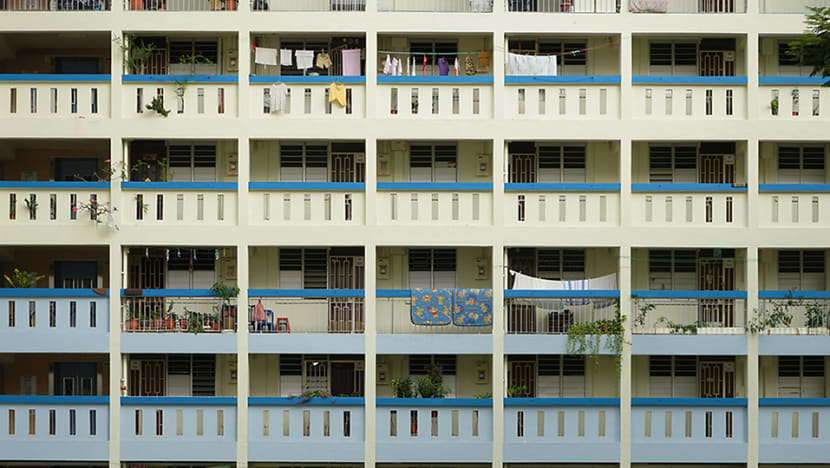Support measures more than offset GST payable by bottom 20% of households: Lawrence Wong

A block of flats in Singapore. (Photo: Marcus Mark Ramos)
SINGAPORE: The support given to households in the bottom 20 per cent by income exceeded the Goods and Services Tax (GST) payable by them in 2019 and 2020, said Second Minister for Finance Lawrence Wong on Tuesday (May 11).
He was responding in Parliament to MP Louis Chua (WP-Sengkang), who asked for the percentage of GST paid by these households that is offset by GST vouchers. Mr Chua also asked for the percentage based on one-off versus permanent GST voucher schemes.
From 2018 to 2020, the permanent GST voucher scheme helped to offset an average of 84 per cent of annual GST payable by the bottom 20 per cent of Singaporean households on a per household member basis, said Mr Wong.
The average percentage goes up to 117 per cent for the last two years with special payments under the scheme.
“In other words … households in the bottom 20 per cent got more from both the permanent and one-off GST vouchers than the amount of GST payable,” the minister said.
READ: Budget 2021: S$900 million Household Support Package to help families with expenses
The GST voucher initiative, first introduced in Budget 2012, comprises an annual cash payout for lower-income Singaporeans, a yearly Medisave top-up for those aged 65 and above and quarterly utility bill rebates (U-Save) for lower- and middle-income HDB households.
There were additional one-off GST Voucher special payments over the past three years, such as the special cash payment given out to Singaporeans in 2019 to celebrate the country’s bicentennial year.
An additional S$20 of U-Save rebates was also given annually from 2019 to 2021 to mitigate the impact of the introduction of the carbon tax.
Further U-Save rebates were given to eligible HDB households last year amid the economic fallout during the COVID-19 pandemic.
READ: Income inequality in Singapore at lowest in almost two decades: SingStat
Mr Wong said the Government is “very focused” on the issue of inequality and has been tackling this through a whole range of measures, including the GST Voucher scheme and Workfare.
He referred to the drop in Singapore's Gini coefficient, which measures income inequality, as an indication that current government schemes are working.
“We will continue to do more to address inequality and social mobility, particularly given the concerns of COVID-19 and the impact of the pandemic being felt disproportionately more by the lower-income groups,” he said.
The Government continues to study enhancements to the permanent GST Voucher scheme.
“An enhanced GSTV scheme will continue to be part of the progressive system of taxes and transfers that we have in Singapore, ensuring that lower-income households receive more benefits than the taxes that they pay,” he said.












